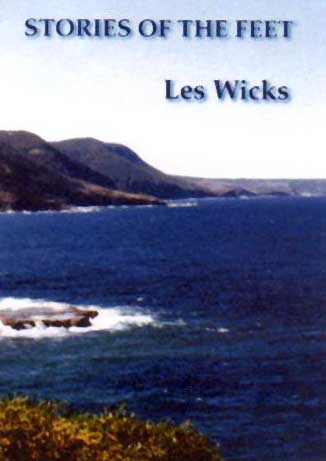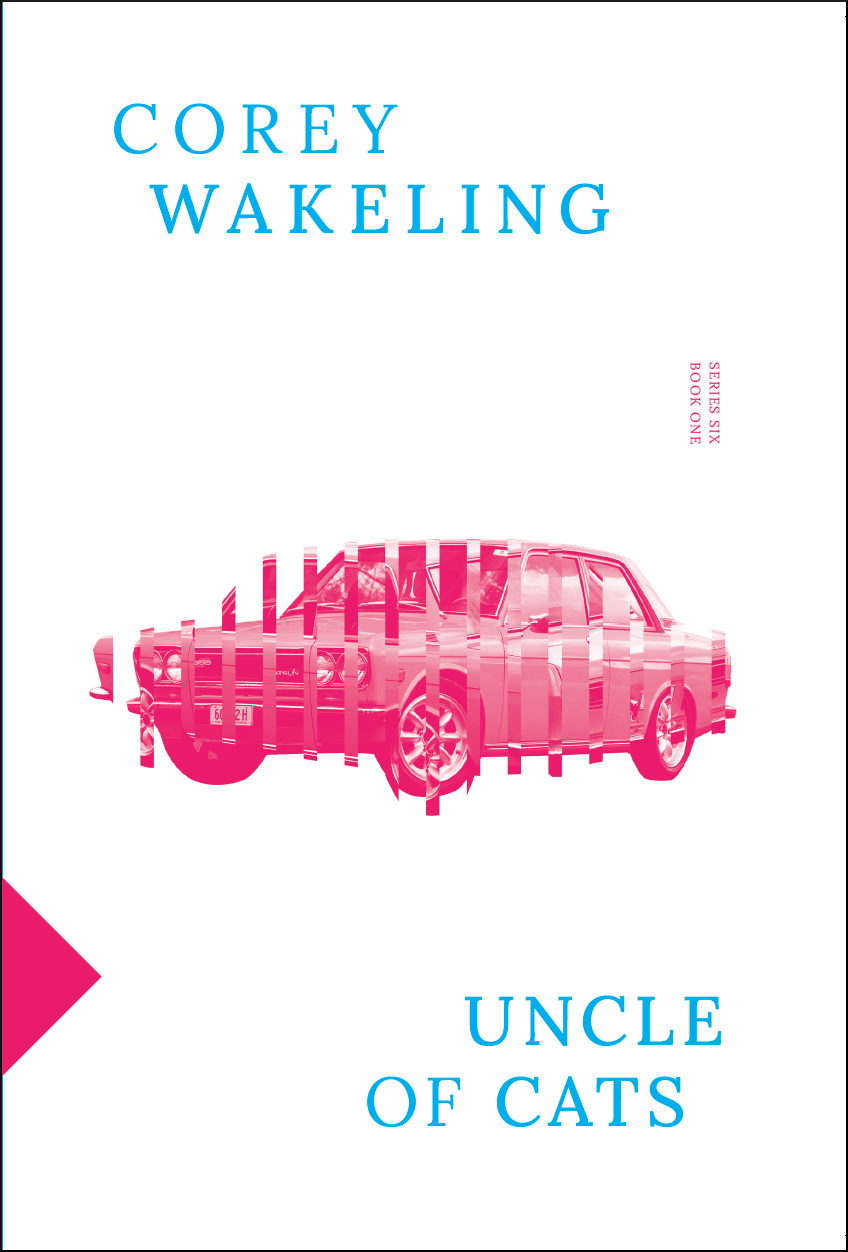 Stories of the feet by Les Wicks
Stories of the feet by Les Wicks
Five Islands Press, 2004
Kurosawa from Oz?
Iconic Japanese film-maker Akira Kurosawa (director of The Seven Samurai (1954), remade by Hollywood as The Magnificent Seven; and Yojimbo (1961), remade (or is that ripped off?) as A Fistful of Dollars) is frequently feted as an artist who elevates the common man to hero status in his phenomenal catalogue of work. Reading the work in Stories of the feet made me wonder if Les Wicks is an Australian poetic equivalent of Kurosawa.
Someone once said that you shouldn't use poetry to tell a story. Either Les hasn't heard this, or he chooses to ignore it. Much of his work consists of poetic snapshots which are acerbic cross-sections of the narratives of ordinary people; and it's the very ordinariness of Wick's characters which elevates them to heroic status. He's at his best documenting the good, the bad and the ugly of the city:
While down below
backlit public toilet purple
electricity's shadow
platform 1
junkies wait for trains in downpipe-drip silence.
two security guards like nurses (white shirts ablaze)
keep the punters quiet & upright.
they're built like
they are
human bulldozers
Wicks has the observational powers of a trained social psychologist:
But the scene is almost as amicable
As the innocuous wallpaper of
Can I help you?…
('Called Out' in “Town”)
“On the Road”
Les Wicks has been at this for some time. He had already had six collections published before the release of Stories of the feet. The frontispiece states: “Les Wicks grew up in western Sydney. He's been a traveller, rail-worker & union advocate. He's performed at festivals, schools, prison etc. Published in over 150 magazines, anthologies & newspapers across 9 countries in 5 languages…”
Stories of the feet (subtitled 'tripped into landscape') is divided into five sections; North, Town, South and West, with “Rear View Mirror” slipped in the middle. The directions refer to Australia in general and were obviously written to represent observations and reflections of a journey, both geographical and personal, I suspect. Les acknowledges support from residencies at the Booranga Writers Centre, Tasmanian Writers Centre and the City of Broken Hill. Presumably, the collection was built up over some time, perhaps like Jack Kerouac's On the Road, although that's about as far as the analogy goes. Whereas Kerouac was a young writer at the time, Les Wicks has considerably more experience under his belt. Poems in this collection have already been published in no less than 53 acknowledged journals, anthologies and websites in Australia and overseas.
And yet, to begin with, I took a while to get into this collection. Perhaps, being from the South, some of the references highly relevant to Wicks were simply lost on me. Nevertheless, by the time I'd reached the final poem in the North section, I was hooked.
'Colour and Movement' is a poem which exemplifies Wicks' genuine love of people, their idiosyncrasies, their weaknesses, their humanity. On the train heading back south, he introduces us to a friendly drunk who says Daryl Somers (remember him?) had changed his life and reiterates, “Ya'll neva neva know if ya neva neva go!”
The harmless inebriate keeps trying to hit on a woman who turns out to be a nun.
He leaned across the aisle,
Told one of the women there
Ya've got a lovely smile darlin'—
What do ya do?I'm a sister
Yeah, I've got a sister too.
No, like a Nun.
But 30 minutes later it's
Neva neva know…
Got a boyfriend luv?
Yet Wicks' pen-portrait of the Sister is just as sympathetic:
While the woman's well-trained niceness
sits vibrantly starched.
Her tan linen placidity will not be shaken
by the flash of passing redgum,
an effulgent spray of water over stone.
The bible in her lap
is some kind of anchor
('Colour and Movement')
homeless. loveless. lifeless.
Les Wicks seems to have some sort of photographic eye as he wanders through the landscape, focussing the lens on a detail most of us might miss, then interpreting the image in his own idiosyncratic style. In addition he analyses his own reactions and behaviours:
He does tai chi
by the shambling bronze river.Then checks his propped fishing rod that has become
some kind of K-mart sundial.But soon he's lost it, screaming Blue sky! Blue sky!
Arms spin like chained dogs
on a rim of panic. Nerve-end mad… eyes implode
& simultaneously reflect light.I pass him on the track
& the ways of Australian men still subdue us
to a lazy mutual pact
G'day. How ya goin'A measured toss of song
from a crumpled thatch of rushes—
the solace of waterfowl
('the LID' in “North”)
I like Les' style. He doesn't force the text into standard forms, or deliberately alternate couplets and tercets. The form is open and dependent on what the poet has to say. He likes leaving a bit of space on the page to highlight a phrase or let that one key word resonate. His love of the vernacular shines through as much as his democratic humanism. These are performance poems — they would have been honed on audiences and actually cry out to be read aloud.
In 'Poet's Piss', Les is taking the piss in both senses, by lampooning a narcissistic writer and having to clean up his acquaintance's prolific urinary output after he leaves:
Our only regret is that we have a mirror
right beside our toilet. In the turn
to persistent self-examination he misses
the porcelain point
of the exercise. Discover our floor awash with puddles.
('Poet's Piss' in “Town”)
The homeless, the loveless, the lifeless. They are all part of the patina Les Wicks renders. In one episode, he manages to evoke the loneliness and anonymity of the urban experience:
The street lights were that funny yellow
like they'd captured bits of sunset
& wanted everyone
to never forgetWaiting for the bus, the guy alongside
remarked that the old bum in the shop alcove hadn't moved at all.
Then the pathos as he realises that this bum is now a corpse, but still deserves the respect due to any deceased human:
The eyes—
I craned to see what had snatched him
when he peeled the lids open
but saw only butcher block,
the shell of last summer's cicada.
('Opened')
Waiting for a slip
“Slipping Away” requires special attention. The narrative is a train crash but the subtext is almost dissociated anomie, focussing ultimately on the mystery of the survivors who disappear:
They are not mentioned again, these three
who left the rails
scrambled up the embankment
beneath morning sky
smudged rose by flashing ambulance.
Their work clothes are blackberry torn,
shoes collecting clay & one, perhaps her
lipstick forgotten in a clenched right hand.
It's this eye for detail that keeps Wicks' work so human and poignant, that everyday vulnerability. Then there's the punchline, the suggestion that the victims exited the rushhour routine to escape something else:
Maybe no injury. They
Were birds who loitered quietly by the cage door,
waiting for a slip
And finally:
…with
peak hour just a murmur in the trees.
('Slipping away')
My personal favourite is another look at a real person you won't see in any McDonald's ad (and one you wouldn't want to take for granted):
Tracksuit, no make up
a gold wedding band snapped around a nail-bitten finger I
marvel as she swings up a solid arm towards
cordial on the top shelf at Go-Lo.She's no part
of the new feminism, dabbles
as well as doubles
triples & more so many
little roles that
just about makes one, her
aim is for completion exactly like
in the 50's where the mother cooked
for family & neighbours & relatives
& family & neighbours & relatives till
occasionally she dropped in
a snippet of Thall-rat
& some one sickened.
('Her Light Fruit Cake')
We need a book like this once in a while to remind ourselves that poets document contemporary society in a way that social scientists never will. With Stories of the feet, Les Wicks focuses his rearview mirror on us.














